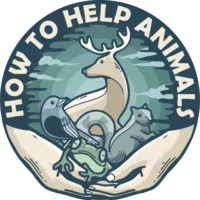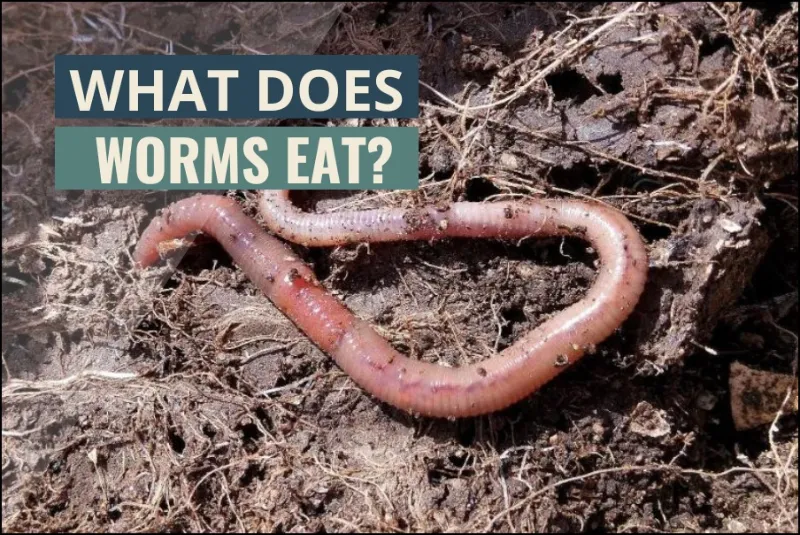
People often take one of Earth’s most important animals for granted or are disgusted by them. There are a rare few who appreciate the work worms do for us and our planet. Without worms we wouldn’t live today. This article is therefore a guide on how you can help our small little friend – the worm.
Worms eat organic matter, meaning they eat almost everything that ever lived – preferably plant-based matter. Besides leaves, bark, straws, and algae, they also eat animal matter like bacterial mats, fungi, and feathers. However, when it comes to leaves they are a bit picky.
We will focus on earthworms in this article, which are most commonly found in your yard. Although there are over 20 000 different types of worms in the world and every one of them serves a unique purpose. Some lives in compost, the yard, underground, in the woods, and there are also aquatic worms found in shallow waters.
What do worms eat?
The worms found in your yard or your compost thrive on organic matter. This means they break down matter that has lived before. Plantbased matter for example. There are however some things they don’t prefer or have trouble digesting. For example citrus, animal meats, oil, dairy, acidic, and spices.
Depending on the type of worm, there are different preferences. While your regular earthworms who dig tunnels in your yard aerating the soil prefer leaves and bacteria, others like the red wiggler enjoy food scraps like potato skins, carrot tops, eggshells, and other things leftover from your latest dinner. Yet most worms are detrivores. (Eating matter that is decaying). However, earthworms may be called fungivores since they prefer fungi.
Examples of foods worms eat
- Leaves
- Roots
- Grass
- Bacteria
- Fungi
Examples of foods worms don’t eat
- Citrus food (lemon, limes, oranges)
- Oily food
- Dairy
- Spicy food
- Onions and garlic
Red wrigglers found in your compost may not eat inorganic materials, large or hard pieces of organic matter, animal products, spicy or pungent foods, or diseased or pest-infested plant material. It is important to carefully manage what is added to a vermicomposting system to ensure that the worms have a healthy and balanced diet. If you are more interested in what worms don’t eat you might want to read our article here.
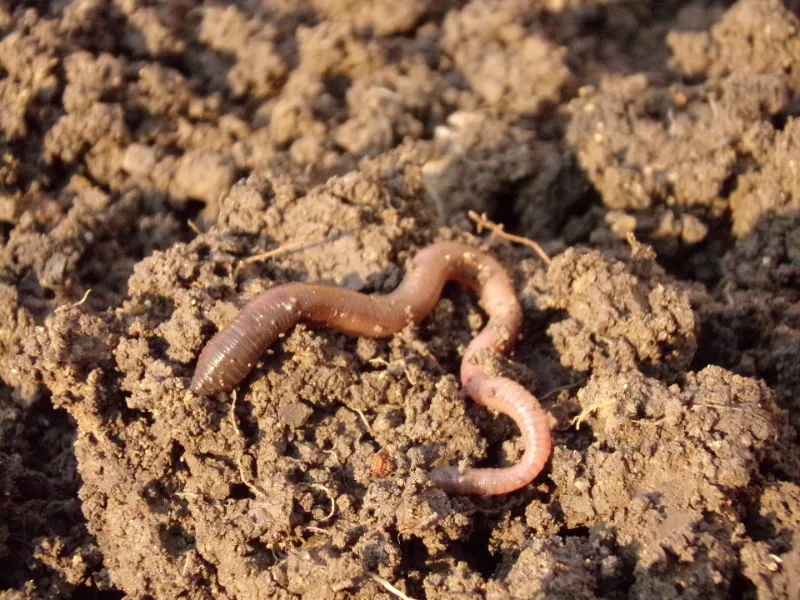
What do you feed a worm?
There are different types of worms, with different food preferences. Feeding your garden worm differ somewhat from feeding the worms living in your vermicompost. For worms living in the soil in your garden, the best advice is to keep your garden as healthy as possible. Growing different types of plants, and give the garden a huge diversity. The worms will find decaying matter by themselves, as long as you have plants growing there. However, every now and then I sprinkle some coffee grounds all over the yard. It’s important not to add too much coffee grounds since it contains a lot of nitrogen, and you want to keep a healthy balance between nitrogen and oxygen. Despite the brown color of the coffee grounds, it’s still counted as a green material due to its high nitrogen levels.
A rule of thumb when feeding the worms in your vermicompost is to give them as much plant-based material as possible. Rotting meat, processed food, and dairy aren’t good for them and they will have a hard time breaking them down. Instead, focus on giving them peels, skins, stalks, and withering herbs from the green category. From the brown category, there are eggshells, newspaper, and egg cartons that work great. However, it would be extra helpful if you shredded them before you offered them to the worms. Smaller things are easier to digest and quicker you will get your worm castings. If you want to learn how to bait worms you can read my best five tips on how to catch worms here.
What do earthworms eat?
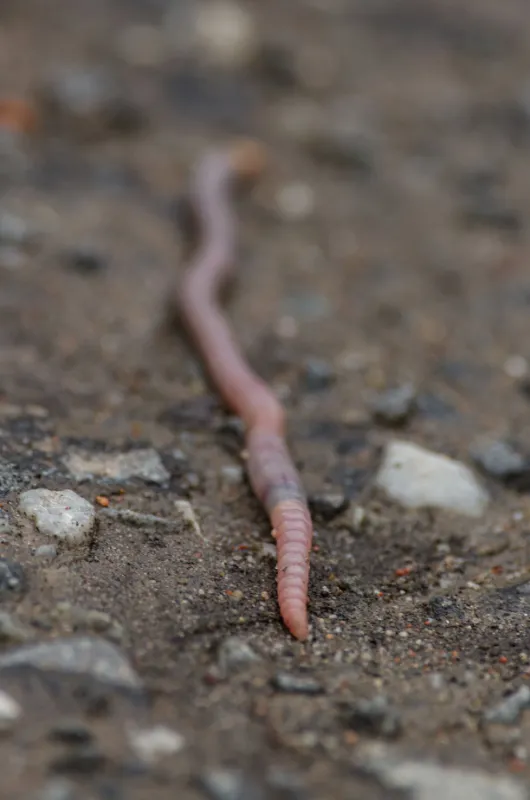
Earthworms are a type of invertebrate that can be found in many different environments around the world. These worms play a vital role in the ecosystem by helping to break down organic matter and enrich the soil.
Earthworms primarily feed on dead plant material and other organic matter, and they are often found in soil that is rich in these substances, such as in compost piles or gardens. When they come across a food source, they use their muscular bodies to burrow through the soil and bring the food down into their underground burrows.
Earthworms have a simple digestive system that includes a mouth, pharynx, esophagus, crop, gizzard, and intestine. When they find food, they use their pharynx to move the food into their esophagus, where it is then passed on to the crop, a storage organ. The food is then moved on to the gizzard, a muscular organ that grinds up the food using small stones ingested by the earthworm. The ground-up food is then passed on to the intestine, where it is further digested and absorbed.
Earthworms are generally omnivorous and will eat a wide variety of organic matter, including leaves, grass clippings, fruit and vegetable scraps, and even small insects. They are also known to eat their own feces, which helps to recycle nutrients back into the soil.
In addition to their role as decomposers, earthworms also play a vital role in the ecosystem as a food source for other animals. Many birds, small mammals, and reptiles rely on earthworms as a primary source of food, and their presence in the soil is an important indicator of the overall health of an ecosystem.
In summary, earthworms are scavengers that primarily feed on dead plant material and other organic matter, and they play a vital role in the ecosystem by helping to break down organic matter and enrich the soil. They have a simple digestive system that includes a mouth, pharynx, esophagus, crop, gizzard, and intestine, and they are generally omnivorous, feeding on a wide variety of organic matter. They also play an important role as a food source for other animals.
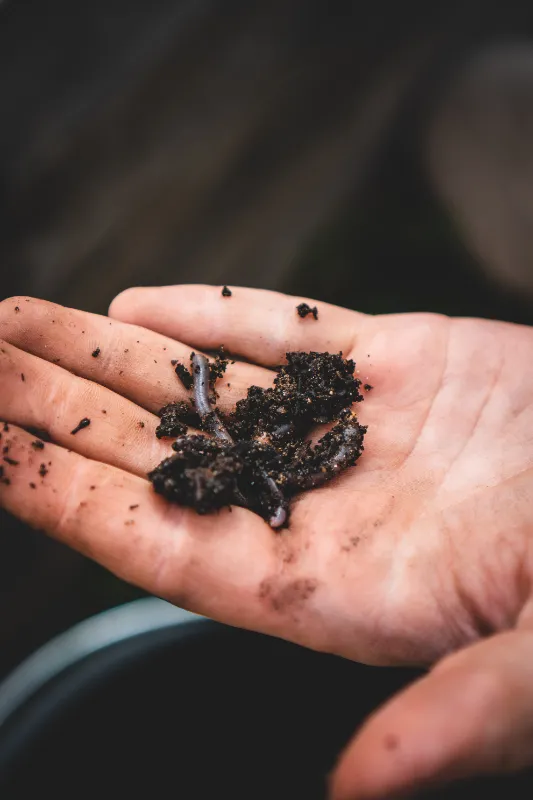
Do worms drink water?
Like all living organisms, worms need water to survive. They absorb water through their skin, which is permeable to water and other small molecules. Earthworms, in particular, are well adapted to living in damp or moist environments and have a high capacity for water absorption through their skin.
Worms are also able to extract moisture from their food, which helps them to meet their hydration needs. However, they still need to drink water directly, especially if the soil or environment they are in is dry or lacks sufficient moisture.
In addition to providing hydration, water is also important for the digestion and metabolism of worms. Water helps to break down the organic matter that worms eat, and it is also necessary for the proper functioning of their digestive and excretory systems.
In summary, worms do drink water and need it to survive. They absorb water through their skin and also extract moisture from their food, and water is important for their digestion and metabolism.
If you are afraid of having too much moisture in your vermicompost, the solution is to stop adding greens and focus more on the browns. If you aren’t sure wether you have too much moisture for your worms you can perform the so-called “squeeze test”.
The squeeze test
- Grab a handful of soil. Remove any worms
- Squeeze as hard as you can for 3-4 seconds.
- If you see more than 1-2 drops escaping from your closed fist you have too much moisture. No drops – too little moisture.
- The soil should stay intact when you release your fist, in the form that your fingers shaped it.
Do worms eat grass?
Worms eat anything that is decaying. As long as the grass is decaying there will soon be worms turning it to worm castings. If you need to add more greens to your compost pile, you can use grass clippings. If you have raked some leaves you can add them to the compost as well, although they are considered browns.
How much can worms eat each day?
It is difficult to determine exactly how much worms can eat each day, as it depends on various factors such as the size and species of the worms, the type of food they are consuming, and the conditions of their environment. However, worms are generally able to consume a large amount of organic matter considering their small size.
As a general rule, worms can eat their own body weight in food per day. For instance, if a vermicomposting system contains 1 pound of worms, they could potentially consume 1 pound of organic matter per day. It’s important to keep in mind, though, that worms have a slow metabolism and do not need to be fed as frequently as other animals. In a well-managed vermicomposting system, worms should have a constant supply of food, but it is not necessary to feed them every day.
It’s also worth noting that worms have preferences for certain types of food and may not eat everything that is offered to them. They generally prefer fresh, moist, and nutrient-rich materials and may have difficulty breaking down dry, tough, or fibrous materials.
In summary, worms can consume a significant amount of organic matter each day, potentially up to their body weight in food. However, their actual food intake will depend on various factors and they do not need to be fed every day. They also have preferences for certain types of food and may not eat everything that is offered to them.
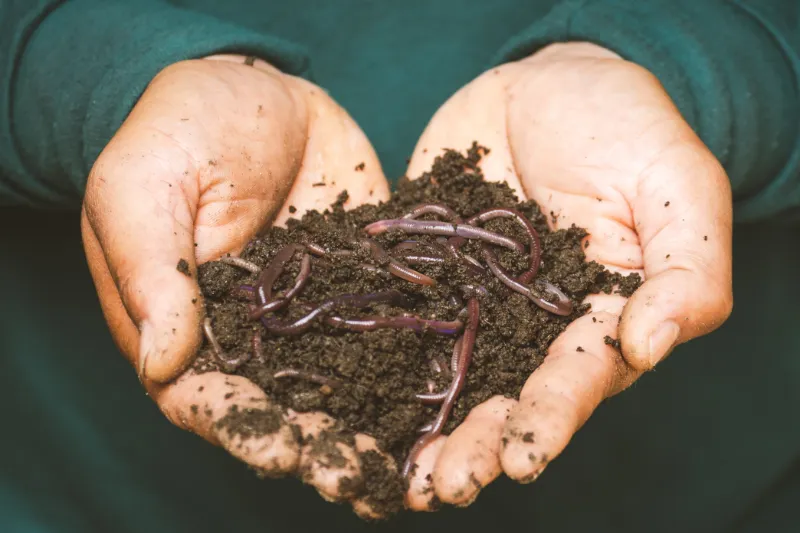
Summary
Worms are small, invertebrate animals that play a vital role in the ecosystem by breaking down organic matter and enriching the soil. There are over 20,000 different types of worms in the world, and each one serves a unique purpose. Some worms live in compost, the yard, underground, in the woods, and there are also aquatic worms found in shallow waters. In this article, we will focus on earthworms, which are most commonly found in yards and are often used in vermicomposting systems.
Earthworms eat organic matter, meaning they consume almost everything that has ever lived, preferably plant-based matter. In addition to leaves, bark, straws, and algae, they also eat animal matter such as bacterial mats, fungi, and feathers. However, they can be picky when it comes to leaves and may not eat citrus, animal meats, oil, dairy, acidic, or spicy foods. Depending on the type of worm, there may be other preferences as well. For example, red wrigglers found in vermicomposting systems may not eat inorganic materials, large or hard pieces of organic matter, animal products, spicy or pungent foods, or diseased or pest-infested plant material.
To feed worms, it is important to consider their food preferences and provide them with a healthy and balanced diet. In a garden, the best way to feed worms is to keep the soil healthy by growing a diverse range of plants and occasionally adding coffee grounds, which are high in nitrogen and can help to enrich the soil. In a vermicomposting system, it is important to focus on plant-based materials such as peels, skins, stalks, and withering herbs from the green category, and eggshells, newspaper, and egg cartons from the brown category. These materials should be shredded to make them easier for the worms to digest.
In summary, worms are small, invertebrate animals that play a vital role in the ecosystem by breaking down organic matter and enriching the soil. They eat a wide variety of organic matter, including plant-based and animal materials, but may have preferences for certain types of food and may not eat everything that is offered to them. To feed worms, it is important to consider their food preferences and provide them with a healthy and balanced diet.
